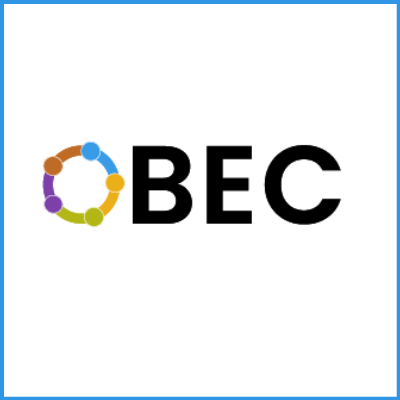This goal is born from the fact that the processes of recognition of such certificates, as well as of skills, are often cumbersome or inaccessible for many people and thus form an obstacle to their integration into the labour market. In a world increasingly defined by transnational mobility at almost every level, this hinders the social inclusion and the employability of all in a major way.
To this end, OBEC aims to achieve three things: First, researching knowledge gaps and the current state of economic and social integration of the project’s target group. Secondly, developing and implementing an experimental badge system to utilise blockchain technology in EU systems of educational credentials within an upskilling training programme. Lastly, compiling a set of case studies and videos, as well as guidelines including good practices and mentoring advice for practitioners.
We are proud to say that the first phase of the project is now successfully concluded.
Intellectual Output 1 – Naming the Barriers
The goal of IO1 was to gather information about the current situation as regards the recognition of educational credentials and competences among various demographic groups in Europe. In particular migrants (both intra and extra European), exchange students, and people with alternative learning background were focused on. In addition, those three target groups were focussed on in terms of both individuals and educational institutions. So, for example, data was gathered both from working/work-seeking migrants and from institutions which exist to help them find work or companies which employ them. Likewise, international students were spoken to as well as Erasmus administrative offices, and those with alternative learning background were complimentary to national job-seeking agencies that offer support to them. Data was gathered via a combination of one-on-one interviews and questionnaires. In this way, information was gathered in order to obtain the target groups’ point-of-view on potential issues encountered when trying to acquire formal recognition of competences.
The second purpose of IO1 was to understand the contemporary use of blockchain technology and the potential issues that may be present when employing it, as well as to generally assess the European legal and institutional stance towards blockchain and formal certification of competences.
The final product of IO1 has been the compilation of a report detailing the barriers discovered during all of the above-mentioned research.
The Results
The first major issue encountered by individuals when trying to receive recognition for their competences is that very few precise rules for cross-national recognition of titles actually exist. This is only amplified for people coming from outside of the European Union, EEA, and Switzerland, since the existing attempts to standardised systems between countries have mostly been carried out at the intra-European level. A further issue is that, even in cases in which there is a possibility of gaining recognition for a specific competence, the bureaucratic burden is extremely heavy and people feel lost in the intricacies of the procedures that they need to follow.
Concerning the current European status of Blockchain technologies, there are at least two separate issues. The first issue is technical in nature and has to do with the difficulty of having an omni-comprehensive system of educational credentials for all subjects. This is an issue because some people do not lend well to proper objective evaluations and it is therefore hard to certify them across different institutions and countries. The second issue has to do with popular perceptions of blockchain technology. This is a major issue since blockchain is most commonly associated with cryptocurrencies, speculative assets famed for their volatility and unsavoury associations, while the very opposite applies to blockchain in the context of its potential for use in the validation of learning credentials.
With these learning outcomes in mind, it will now be OBEC’s next goal to develop an upskilling training programme as well as an experimental badge system. By doing so, the project partners will test how they can utilise Blockchain technology in future EU systems of educational credential. If you would like to know more about OBEC click here.
